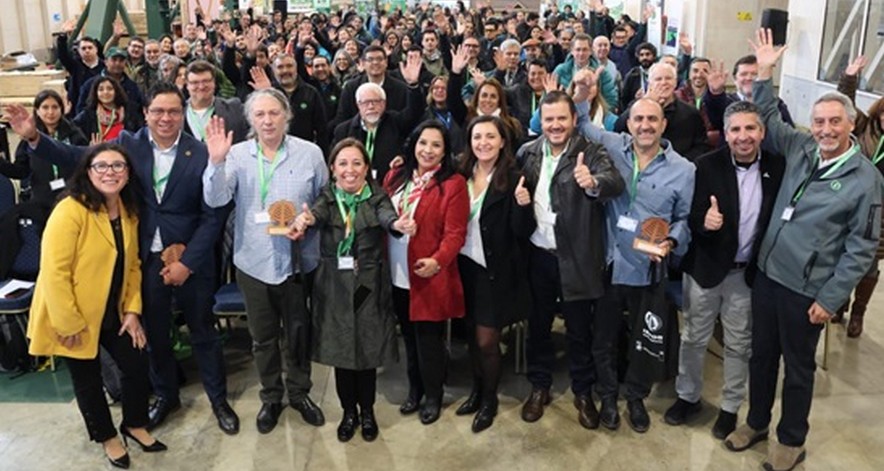- The event, organized by the Forestry Institute (INFOR) of the Ministry of Agriculture, delved into the contributions of agroforestry in productive and environmental restoration and recovery, featuring presentations by specialists from Argentina and Brazil.
The Forestry Institute (INFOR), together with the Biobío Regional Government and the Inter-American Institute for Cooperation on Agriculture (IICA), held the international seminar "Contributions of Agroforestry to the Productive and Environmental Restoration and Recovery of Landscapes Affected by Forest Fires," held at the INFOR Biobío headquarters in the commune of San Pedro de la Paz.
The meeting aimed to provide concepts and share experiences in the recovery of soils affected by forest fires and erosion, particularly in the Biobío Region, from a sustainable development perspective of rural-forest landscapes. Presenters included the national forestry coordinator of INTA in Argentina, Pablo Peri; the director of the 20x20 Initiative at the World Resources Institute (WRI), René Zamora; and the director of the Brazilian Institute for Sustainable Development (IABS), Luis Assad.
INFOR's executive director, Sandra Gaticúa, emphasized that "the relevance of this international seminar lies in its impact on public policies to recover eroded areas and soils, primarily in the Biobío Region and nationwide, through agroforestry."
"Latin American speakers have demonstrated how policies promoting agroforestry and the forestry sector contribute to the recovery of forests, soils, and natural resources in the country," she added.
Meanwhile, the Regional Minister of Agriculture for Biobío, Pamela Gatti, highlighted the seminar's key themes: soil and affected area recovery, integration of indigenous communities, innovation and agro-sustainability, a focus on small-scale family farming, and inter-institutional collaboration.
"As the Ministry of Agriculture, we are convinced that implementing agroforestry is an effective tool for restoring and recovering lands affected by forest fires. That is why this seminar is so important—it allows us not only to expand our knowledge on this subject but also to learn and share concrete national and international experiences," stated Gatti.
More Diverse and Resilient Agricultural Landscapes
Experts highlighted that agroforestry can help diversify and make agricultural landscapes more resilient, but it is crucial to consider the diversity of uses and sustainability approaches in different landscape contexts.
René Zamora, director of the 20x20 Initiative at the World Resources Institute and one of the event's speakers, noted, "These systems can contribute to making landscapes more diverse and resilient, increasing agricultural productivity on one hand and incorporating trees on the other. But we must also recognize that there is a diversity of uses, and each use must find its own sustainability system."
Blas Araneda, Head of Planning for the Biobío Regional Government, valued the event, stating that the GORE "is focused on coordinating efforts among productive, academic, and public sectors to improve people's quality of life, especially in forestry and agriculture. The goal is to increase productivity responsibly, protecting the environment and considering the legacy for future generations."
Finally, Alvaro Sotomayor, INFOR researcher and national head of Agroforestry Systems at INFOR, emphasized that agroforestry systems "not only address productive interests but also environmental ones to restore the sustainability of our territories, always keeping in mind the support for farmers, with whom we work."
The event concluded with a tour of agroforestry and restoration units established by INFOR in the commune of Florida, allowing farmers, authorities, professionals, and specialists to engage with the topic in a hands-on manner.







Comentarios (0)
No hay comentarios aún. ¡Sé el primero en comentar!
Deja un comentario